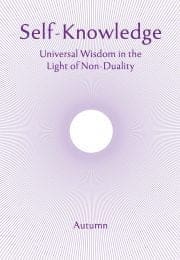Kena Upanishad—Difficulties Resolved
The last of three short talks on this Upanishad by the Warden
The Kena Upanishad gives valuable hints about the path to self-realisation. At first sight it might seem that the opposite is the case. For we are told at the start that this is not a teaching that can be adequately expressed in words. This is because it draws our attention to a realm of being which surpasses and transcends the psychological need to form words and sentences. In fact this realm of being does not involve mental activity at all. So this is one great mystery about the teaching, and some may view this difficulty as a deterrent to further enquiry.
But another difficulty is to follow. The Upanishad gives us the example of a serious pupil who has studied the non-dual philosophy in depth, and who has a good understanding of the meaning of Brahman. (Brahman is the term used for the absolute reality—that which is eternally real in contrast to the universe and its living beings, which are subject to continuous change.) We may recall that this enquirer has reached a point in development whereby he or she feels emboldened to tell the teacher: ‘I have known Brahman well enough.’ But the teacher points out that to make such a statement proves that the reality, Brahman, is not rightly known, and the pupil is told to reflect more deeply if his or her aim in life is enlightenment.
Then why was the statement: ‘I have known Brahman well enough’ rejected by the teacher? Because it sprang not from realisation but from an ongoing dependence on habitual ways of thought and expression. That habit, the deepest habit of all in our psychology, sees experience as a split between self as subject and everything else as its object. It is not that we are frightened by the possibility of a new way of experiencing life and our self that will transcend individuality. It is just that the habits of observation and response based on duality are so deeply rooted that our imagination cannot picture a self-transcending oneness. Therefore we hold on to what we already know and how we know it.
Subscribe or enrol for free guest access to read all of this article and Self-Knowledge online.
Already subscribed or enrolled? Log in:


